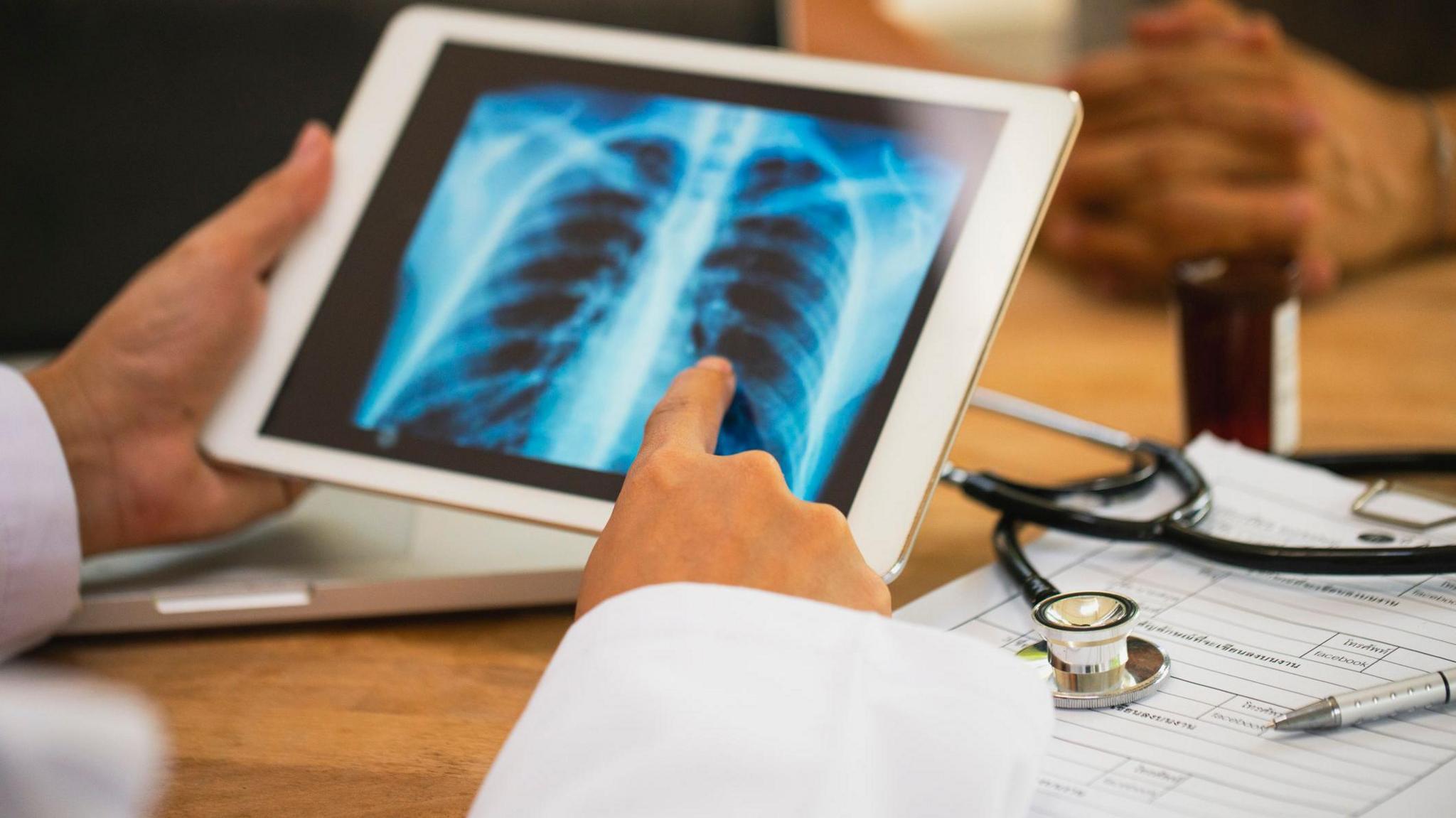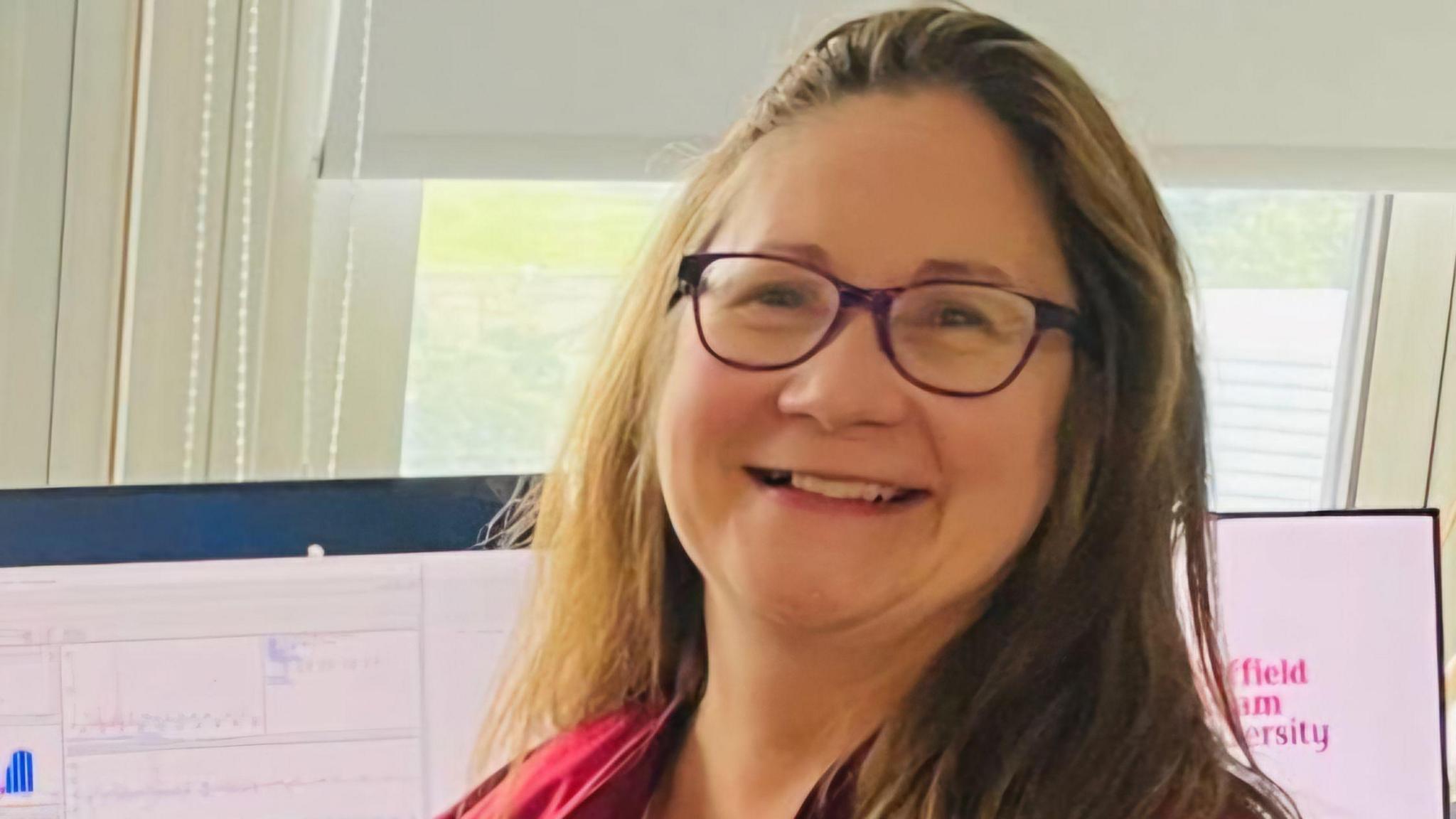Scientists developing 'breath test' for cancer

The test may help spot the first signs of cancers including mesothelioma, a disease primarily affecting the lungs
- Published
An aggressive form of cancer could be detected earlier through a simple breath test being developed by researchers from Sheffield Hallam University.
Scientists are working on a test to spot signs of cancers including mesothelioma, a disease primarily affecting the lungs and almost always caused by exposure to asbestos, before symptoms emerge.
Researchers said lives could be saved through the early detection and treatment of cancer.
Dr Sarah Haywood-Small, associate head of university's school of biosciences and chemistry, said the work was "an encouraging step forward".
The tests have been developed in a laboratory on cells that have been treated with asbestos.
The cancerous cells gave off compounds which could be detected in breath, according to the researchers.
These so-called "red flags" were shown to be significant markers of cancer, appearing much sooner than most symptoms and acting as a type of "fingerprint", the scientists said.
Cancer Research UK, which has put more than £70,000 into the project, said the findings could also potentially help detect other cancers linked to inflammation, including laryngeal and ovarian cancer.
A spokesperson for the charity said doing a breath test would be a non-invasive way to regularly check people for early signs of disease.

Dr Sarah Haywood-Small said the results so far had been "encouraging"
Dr Haywood-Small said more research was still needed but initial results showed the team was "on track to develop a more effective diagnostic approach".
"The human breath contains valuable biological information—offering a window into our body's metabolism," she said.
"By learning to read these signals, we can detect diseases earlier, monitor conditions more accurately, and potentially save lives."
Listen to highlights from South Yorkshire on BBC Sounds, catch up with the latest episode of Look North or tell us a story you think we should be covering here, external.